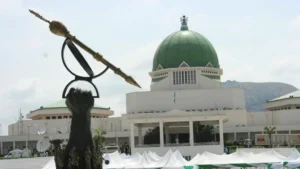![[OPINION] Offa Descendants Union (ODU) @ 90: Time for a Sober Reflection](https://newsbulletin.com.ng/wp-content/uploads/2025/10/1760420269106.jpg)
By Abdulfatai Tomori
Ninety years of existence should ordinarily be a time of celebration. Yet for the Offa Descendants Union, this milestone calls for introspection as much as festivity.
It invites us to pause and reflect on who we have become as a people and how faithfully we have preserved the image of the Union that binds us all, whether we belong to it formally or not.
The ODU was created to unite every son and daughter of Offa. It welcomes all, regardless of class, belief, or opinion. It was never meant to be a group for the rich or the well-spoken alone.
It was built to guide a people whose greatest strength is good character. The Union is the conscience of Offa and a symbol of unity and shared responsibility. This noble foundation must be protected.
Many today treat the ODU as a social club. It is far more than that. It represents who we are as a people. Every Offa person, whether at home or abroad, rich or poor, whatever their faith or background, carries that identity. Our words and actions, in both public and private life, reflect the image of the Union. When one acts without honesty or fairness, it affects the entire community. Protecting the image of the ODU requires discipline, respect, and self-control from all of us.
The King of Fuji, Alhaji Wasiu Ayinde Marshal, is not just a musician. He is a living record of Yoruba life and experience. His music carries melody and memory, joy and sorrow, rhythm and reflection. Behind the talking drums and rolling percussion lies a moral voice that teaches as much as it entertains. Olori omo Oba Akile Ijebu is one of those rare artists whose words go beyond the stage and live in the conscience of society.
In one of his live recordings, he told a simple village story, the kind that hides a lesson behind laughter. He spoke of two young boys returning from the farm, their hands dusty and their hearts full of mischief. They stopped at the home of one of them, where his father lay sleeping outside on a chair, mouth open in deep rest.
The visitor, in childish playfulness, pointed and said, “See your father sleeping with his mouth open. Let us drop this little cockroach, kokoro ayan, that we brought from the farm, into his mouth.”
Without a thought, the boy whose father was sleeping picked the cockroach and dropped it into his father’s mouth.
The man woke up abruptly, shocked and confused. When he regained his composure, he asked,
“Who put that cockroach in my mouth?” he asked.
“It was me,” the boy said. “My friend told me to, so I did.”
The father asked quietly, “Where is your friend’s father?”
“He is at home.”
“And where is your father?”
“You are here,” the boy answered.
That was all.
K1 the Ultimate did not finish the story. He did not need to. The silence that followed said it all. The story of the two boys is not just a folktale; it is happening in our community today. We see it when some young people, in the name of modern life, mock the very institutions that shaped them. They speak against our elders, our union, and the traditions they should protect. They do not realise that by disrespecting the community they should be proud of, they are only hurting themselves. The same structures they attack are the ones they will one day inherit. The bed they lie on today will be the one they sleep on tomorrow. Some of us, too, have allowed imitation to replace wisdom. We have turned the tools meant to build our community into tools of division. The lesson is not to find blame but to learn to protect what keeps us united.
Once upon a time, to call someone an Offa man was to show trust and respect. His word was reliable, his judgment was fair, and his presence commanded honour. That reputation was built, not on wealth or power, but on strong moral values. Over the years, that good image has been weakened by rivalry, politics, and the search for personal recognition. Our public conversations have become harsh, and our sense of brotherhood has suffered under pride and suspicion.
Social media, which should unite us and promote our culture and tradition, has too often become a battlefield. Emotions now rise above reason, and insults take the place of dialogue. We have allowed division to grow where unity should stand. Many now value popularity more than good character, forgetting that real progress comes from integrity. These attitudes may seem small, but they slowly destroy the moral foundation our forefathers built with honesty and sacrifice.
To protect the image of the ODU, we must return to our moral roots. Leaders must see service as a duty, not as a privilege. Citizens should speak the truth with respect and show self-control even when they disagree. The Union must find its voice of integrity again and refuse to bend to politics or personal interest.
This was the spirit of the founders who met in Lagos in 1935. They had little except faith, unity, and a shared dream. They knew that a community’s greatness is not measured by tall buildings but by the uprightness of its people.
Leadership in every area of life is a sacred trust, not an entitlement. It is a chance to serve and to make things better than we met them.
When that trust is used wisely, it blesses both the leader and the people. When it is abused, it becomes a heavy burden, and the account is kept beyond human eyes. This is not a rebuke, but a gentle reminder that power is temporary while responsibility lasts forever. Let this 90th year be the year we create a Code of Conduct for our public discussions, both online and in meetings. Let it also be the year we renew the culture of mentoring our youth — not through criticism, but through inclusion. We should invite them to serve on committees and learn the true meaning of responsibility.
Our leaders should also take a bold step to resolve at least one long-standing internal dispute, not for political gain, but to show our unity and strength as a people. More importantly, we must teach our youth to use social media responsibly. Anyone who writes to insult or cause division should be guided and corrected with patience. Leaders must not allow young people to expose our disagreements or weaknesses in public. They should call them to order with wisdom and firmness.
We know that youthful energy often comes with passion and impatience. Without proper guidance, it can be easily misdirected. This is why mentorship is so important. It helps young people focus their energy on building, not breaking; on uniting, not dividing. This duty is not for the youth alone. Some elders also speak or write without caution, and a few even use their official positions to share things that should never be made public. We must all remember that our words have power. They can heal or harm. Our words should build, not destroy.
It is not that we have never had disagreements among ourselves. Such differences are normal. We all want the progress and development of our town. What matters is how we handle those differences. Our past leaders faced similar challenges with wisdom and restraint. They came out with no victor and no vanquished.
The 90th anniversary of ODU should not be a parade of history or self-praise. It should be a moment of truth. We must ask ourselves what kind of legacy we are leaving for the next generation. Do our actions still show the honour of Offa? Do our words build trust or create resentment? Do we still stand together when it matters most, or have we become strangers joined only by geography and memory?
The answers to these questions will decide whether Offa keeps the respect it once enjoyed or falls into moral decline. The future of ODU does not depend on ceremonies or titles but on the daily conduct of its people. We must choose character over pride, sincerity over show, and unity over rivalry.
This is not a time for celebration alone. It is a call to conscience. The founders of ODU gave us a sacred trust and a name that once commanded respect. As we mark ninety years, let us renew that trust with integrity, humility, and unity so that when history speaks again, it will say that Offa remained true to her values of justice, equality, and honour.
Abdulfatai writes from Offa. He can be reached through: [email protected]


![[OPINION] We Must Not Play Politics with the Lives of Our People](https://newsbulletin.com.ng/wp-content/uploads/2025/10/1759844169367-225x300.jpg)
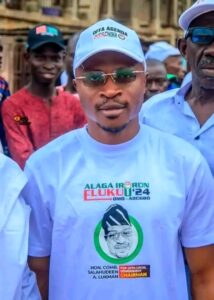
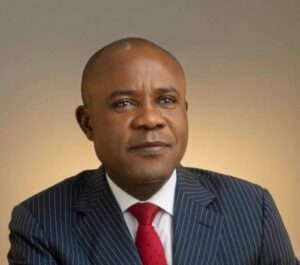
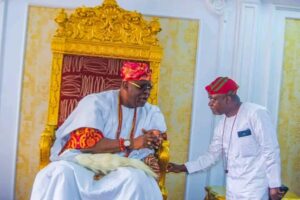
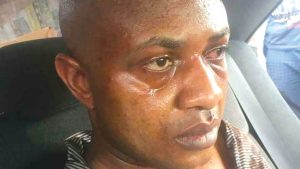
![[PHOTOS] Offa LG Councillor, Prince Adegboye Adeniyi Festus Empowers Constituents, Donates Education and Health Materials](https://newsbulletin.com.ng/wp-content/uploads/2025/10/1760428832288-300x300.jpg)
